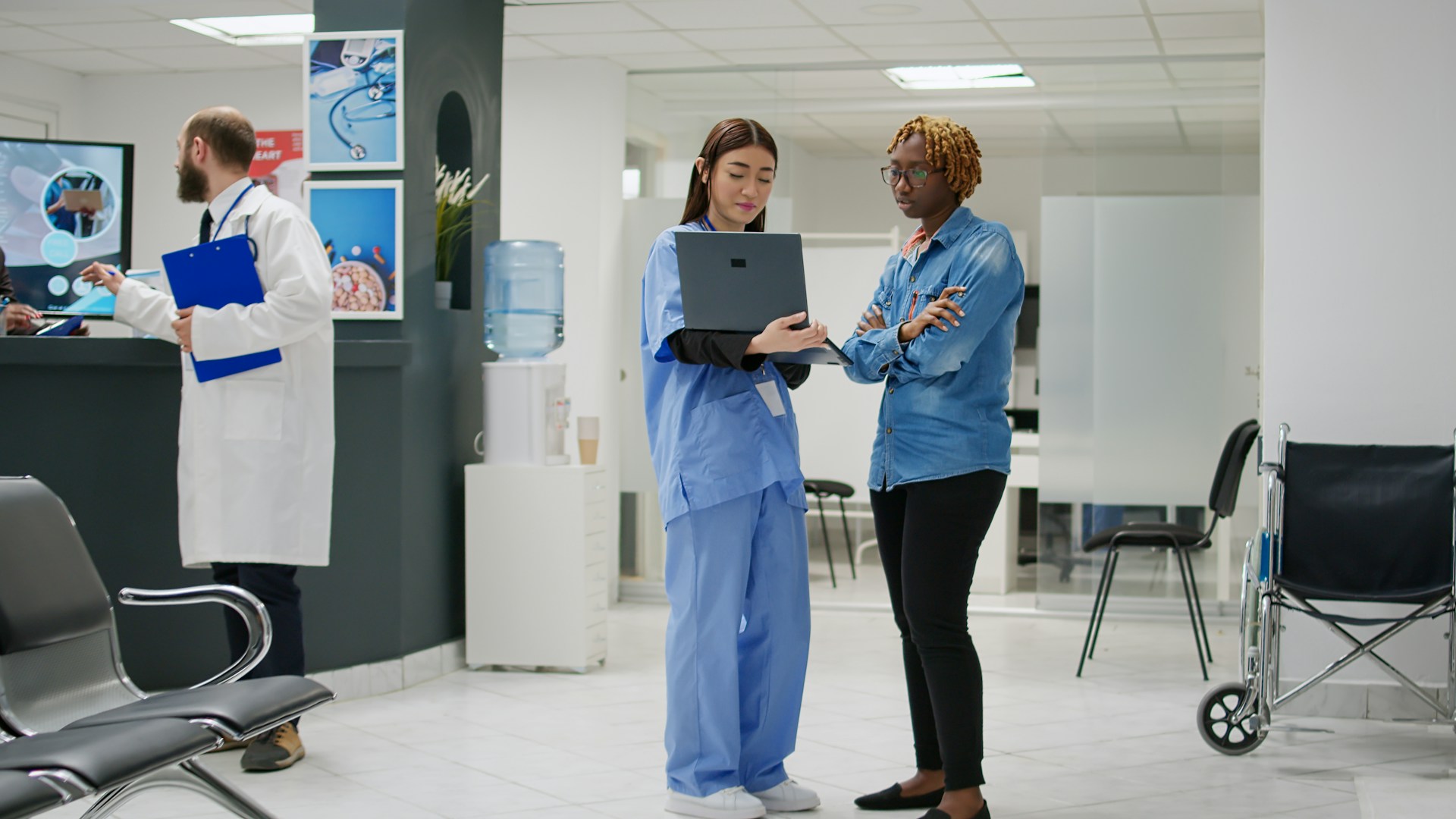Can Hospital Technology Make Patient Care Better? Innovations Changing Healthcare
Hospitals are filled with life-saving treatments, but the experience for patients can sometimes feel outdated. Long wait times, communication breakdowns, and inefficient processes all make what should be a place of healing feel frustrating instead. Fortunately, technology is stepping in to improve patient care, making hospitals smarter, safer, and more efficient.
From artificial intelligence to better communication systems, these innovations are helping doctors, nurses, and patients alike. The right technology doesn’t just make life easier for medical staff—it improves outcomes, enhances safety, and makes the entire healthcare experience more patient-focused. Let’s evaluate some hospital technologies that are making a real difference in patient care.
Smart Technology to Improve Patient Care
Hospitals have always been centers of medical innovation, but smart technology is taking patient care to an entirely new level. From AI-driven diagnostics to real-time monitoring systems, hospitals are leveraging technology to ensure patients receive the best possible treatment.
One of the most impactful advancements comes from integrating AI and automation into patient care. Smart sensors can track vital signs without requiring constant manual checks, alerting medical staff the moment something appears abnormal. These systems can find the early warning signs of sepsis, heart failure, or respiratory distress, giving doctors and nurses the opportunity to intervene before a situation becomes critical.
Beyond monitoring, smart hospital systems streamline administrative work, reducing time on paperwork and increasing the time available for direct patient interaction. When medical professionals can focus more on patient care and less on manual processes, hospital efficiency improves, and patient outcomes become more positive.
Nurse Communication Systems Save Lives
Hospitals rely on fast and effective communication, but outdated paging systems and unreliable calls can lead to delays in care. That’s why the modern nurse communication systems are one of the most critical upgrades hospitals can invest in.
Instead of relying on just intercoms and crowded nursing stations, advanced communication systems allow nurses to receive real-time alerts directly on mobile devices or dedicated hospital equipment. If a patient’s condition changes, the right staff members can be notified instantly, ensuring quicker response times.
These systems also improve coordination between departments, reducing confusion and miscommunication during shift changes or emergency situations. When seconds count, a streamlined nurse communication system can mean the difference between a routine intervention and a life-threatening crisis. Hospitals that prioritize strong communication infrastructure are setting a new standard for efficiency and patient safety.
Wearable Devices are the Future of Hospital Monitoring
Checking vital signs used to mean waking patients up every few hours, interrupting much-needed rest. But wearable devices are changing that by allowing continuous monitoring without unnecessary disturbances.
Patients in hospitals can now wear lightweight sensors that track heart rate, oxygen levels, and movement patterns, giving doctors and nurses real-time data without requiring constant manual checks. This approach allows for earlier detection of complications and a more personalized approach to treatment.
For patients recovering from surgery or who manage chronic illnesses, wearable devices provide a less invasive way to monitor progress. Instead of relying on occasional check-ins, doctors can see a complete picture of a patient’s health over time, leading to better treatment decisions and fewer complications. The ability to track patient data remotely also means hospitals can extend care beyond their walls, keeping an eye on patients even after they’ve been discharged.
AI can Help Doctors do Better
Doctors are highly trained, but even the most skilled professionals can’t analyze millions of data points in an instant. That’s where artificial intelligence is making an impact, speeding up diagnoses and improving accuracy.
AI-powered tools can scan medical images, flagging potential issues that the human eye might miss. Whether detecting tumors in radiology scans or identifying early signs of neurological disorders, machine learning algorithms assist doctors in making faster, more precise assessments.
Beyond imaging, AI is also revolutionizing laboratory testing. Automated systems analyze blood samples, genetic markers, and infection patterns, helping doctors diagnose diseases sooner and begin treatment earlier. In emergency rooms, AI-driven triage systems can assess symptoms and prioritize care, ensuring the most urgent cases receive attention first.
While AI will never replace doctors, it’s becoming an essential tool in making medical care more efficient and effective. With the ability to process massive amounts of medical data in seconds, AI is helping healthcare professionals deliver faster, better-informed decisions.
Robotics Makes Surgery Safer and More Precise
Surgical procedures have come a long way, and robotics are taking them even further. Robotic-assisted surgery allows for greater precision, smaller incisions, and faster recovery times, all of which contribute to better patient outcomes.
With robotic systems, surgeons control highly sensitive instruments that can make microscopic movements with extreme accuracy. This level of precision reduces damage to surrounding tissue, minimizes scarring, and speeds up healing time. In delicate procedures, such as neurosurgery or cardiovascular operations, robotic assistance can make all the difference in a patient’s recovery. These systems also allow for minimally invasive surgeries that would have previously required large incisions.

